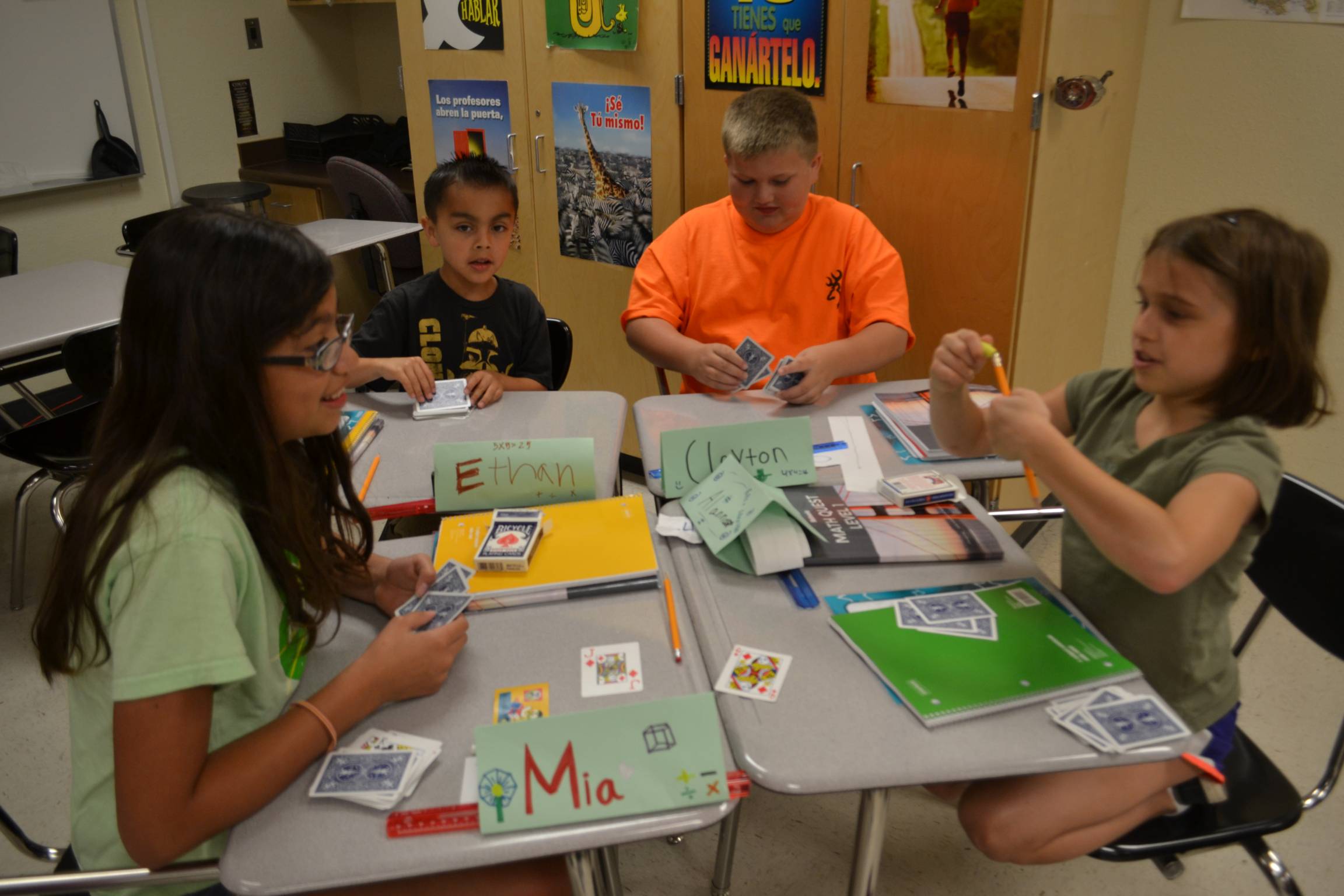The Mathworks Summer Professional Development (PD) prepares teachers to engage students of all backgrounds in doing mathematics at a high level.
Earn 45 Hours of PD
Funded by Mathworks
That's right, teachers attend the program at no cost while gaining valuable teaching practices. The PD equips elementary and middle school teachers with the mathematical background and leadership training needed to give all students the opportunity to build a strong foundation to succeed in mathematics.
This immersive two-week PD program is conducted each summer in San Marcos (at a SMCID host school) in early June, during the Junior Summer Math Camp Half-Day program (JSMCH). In the morning, participants will be part of the JSMCH camp. In the afternoon, teachers participate in a class covering research-based mathematics pedagogy and engaging math activities.
A total of 45 hours of Professional Continuing Education hours is awarded, approved by the State Board for Educator Certification (SBEC).

Dates and Accommodations
June 2 - 12, 2025 (Monday - Thursday)
| 7:30 - 8:00 am | Arrive at host school in San Marcos/Breakfast |
| 8:00-1:30 pm | Class Teacher Assistant/Lunch |
| 1:30-3:00 pm | Reflections on morning camp with colleagues |
| 3:00-4:30 pm | Professional Development |
Room and Board
If you need room and board, we can arrange for that on the Texas State University campus. You are responsible for transportation from the University campus to the JSMC site every day of the program, which will be at a local San Marcos CISD campus in San Marcos (approximately a 15-minute drive from the University campus). If you do not need room and board, you simply need to arrive at the JSMC site every day of the program.
Benefits of Program and Testimonials
The PD program is designed to?
- Give teachers strategies to successfully teach pre-algebra and algebraic concepts at the elementary and middle school level
- Equip teachers with research-based teaching practices
- Inform teachers of pedagogy aligned to student success on STAAR
- Provide opportunities for teachers to work with Texas State mathematics education graduate students and faculty on research
- Give teachers experiences with hands-on activities aligned to elementary and middle school mathematics
- Engage teachers in continual learning and doing of mathematics
- Involve teachers in analyzing classroom practices
- Develop teachers as invaluable resources for colleagues in their own schools and districts
- Enable teachers to host their own Junior Summer Math Camp for 4th-8th grade students
- Enable teachers to use the Mathworks Math Explorations curriculum
Raising Expectations: "I feel excited about going back home and taking what I learned and applying it. I have gained a new perspective. Before I had never thought it possible to teach algebra to such young kids, but I am now a believer. I look forward to coming back next summer.”
Using Hands-on Activities: “Higher level math concepts are presented in an active, interesting way which gets the students motivated and excited.”
Using Manipulatives, Models, and Different Learning Styles: “I particularly enjoyed learning about how to use the two-sided chips for adding and subtracting integers. That is something I will definitely pass along to my students.”
Developing Positive Attitudes: “Talking with the children revealed that they were confident about their performance after these two weeks of lessons and activities.”
Acknowledging Cultural Differences: “These children come from diverse population and various levels of academic performance. They were given the tools and experiences that they need to work through math problems logically.”
Building Strong Foundations: “I plan to use this camp experience to help my students build strong math foundations instead of quick-fix strategies.”
Valuing Group Work: “The cooperative learning groups made the kids happier. They learned more and enjoyed the class more. Their math retention really improved.”
General Teacher Comments:"The hands on experience with the students and material were great. You had an opportunity to see students enjoy the math challenges. Students perform according to what is expected of the especially when they are not under pressure to learn it for a test.”